Pluripotent and Adult Tissue Stem Cells
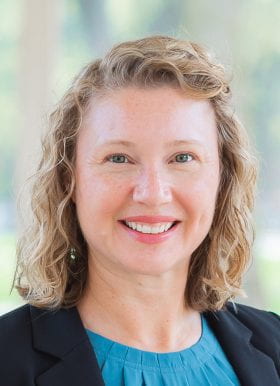
Jennifer Alexander-Brett, MD, PhD
Assistant Professor, Department of Medicine, Division of Pulmonary & Critical Care Medicine
- Email: jalexand@wustl.edu
The Alexander-Brett Lab integrates mucosal immunology, epithelial stem cell biology and protein biochemistry to investigate the role of stromal-immune intercellular crosstalk via extracellular vesicles in driving chronic lung disease pathogenesis.

David Alvarado
Assistant Professor, Surgery
- Email: alvaradodm@wustl.edu
My research focus is on the affect of human genetic variation on response to environmental stimuli, also known as gene-by-environment interactions. I am particularly interested in variants affecting the aryl hydrocarbon receptor (AHR) pathway in the development and progression of inflammatory bowel disease (IBD).
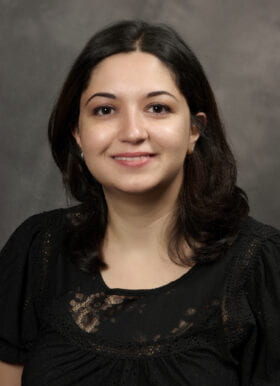
Ghazaleh Ashrafi
Assistant Professor, Cell Biology and Physiology, Genetics
- Email: ghazaleh@wustl.edu
The Ashrafi lab studies metabolic regulation of neurotransmission in health and in neurodegenerative diseases. To this end, the lab uses genetic, biochemical, and quantitative optical imaging techniques to probe metabolic and synaptic function in primary and stem cell-derived neurons and glial cells.
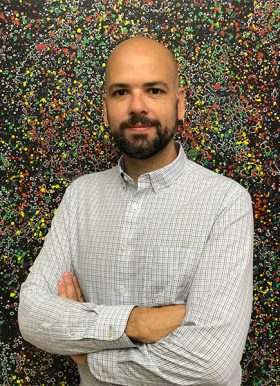
Luis Batista, PhD
Assistant Professor
Division of Hematology, Department of Medicine
- Email: LBATISTA@WUSTL.EDU
The Batista lab investigates the role of telomerase in stem cell function and regulation.
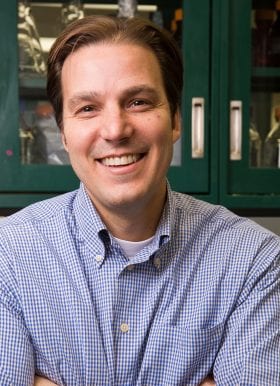
W. Todd Cade, PT, PhD
Professor
Program in Physical Therapy, Department of Medicine
- Email: tcade@wustl.edu
The Cade lab investigates how nutritional factors influence cell behavior, and how iPSCs can be used to model human muscle diseases.
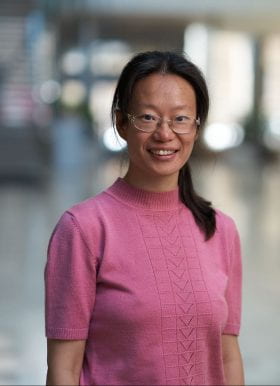
Yao Chen, PhD
Assistant Professor, Department of Neuroscience
- Email: yaochen@wustl.edu

Ying (Maggie) Chen
Associate Professor of Medicine, Division of Nephrology
- Email: ychen32@wustl.edu
Dr. Chen develops hiPSC-derived kidney organoids to model organelle stress-induced genetic kidney diseases and other innovative treatments.
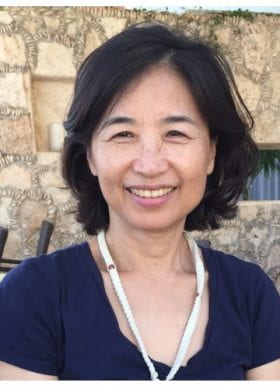
Kyunghee Choi, PhD
Professor, Department of Pathology & Immunology
- Email: kchoi@wustl.edu
The Choi lab studies hematopoietic and endothelial development and the interplay between angiogenesis and immunity in cancer
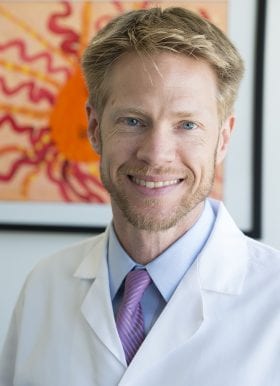
Matthew Ciorba, MD
Associate Professor, Division of Gastroenterology, Department of Medicine
- Email: mciorba@wustl.edu
The Ciorba lab studies studies the roles of amino acid metabolism and microbial interactions in neoplastic and chronic inflammatory conditions of the GI tract.
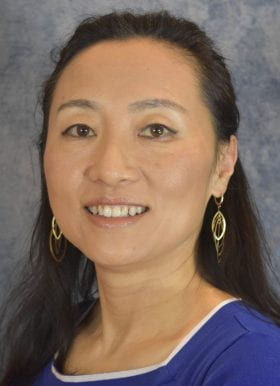
Xiaoxia Cui, PhD
Associate Professor and Director, Genome Engineering & Stem Cell Center
- Email: x.cui@wustl.edu
Dr. Cui directs the Genome Engineering & Stem Cell Center at Washington University. The GESC’s mission is to empower its users with access to the most up-to-date technologies in the fields of gene editing and stem cells and enable the creation of research models best fit for the unique need of each lab.
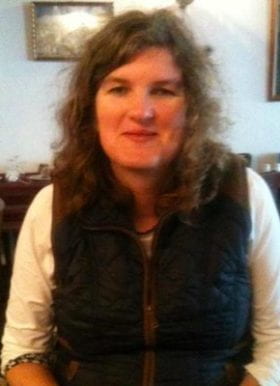
Sabine M Dietmann, PhD
Assistant Professor of Developmental Biology and Medicine, School of Medicine
- Email: sdietmann@wustl.edu
The Dietmann Lab specializes in the development of integrative multi-omics and machine learning approaches to the complex data sets generated by single-cell sequencing technologies in developmental biology and medicine. Her research has focused on the epigenetic landscape of embryonic stem cells and in vitro systems of human development. Of particular recent interest are studies of human organoids for applications in medicine and comparing developmental trajectories with other species and cell-cell communication.
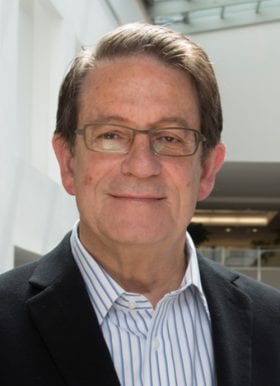
John DiPersio, MD, PhD
Virginia E. & Sam J. Golman Professor of Medicine
Department of Medicine; Chief, Division of Oncology
- Email: jdipersi@wustl.edu
The DiPersio lab studies the mechanisms underlying leukemia, hematopoietic stem cell mobilization, and graft vs. host disease.
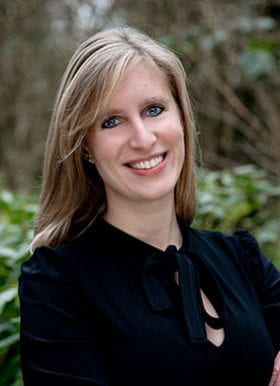
Naomi Dirckx
Assistant Professor, Orthopedic Surgery
- Email: dirckx@wustl.edu
My lab studies the role of the citrate transporter SLC13A5 in bone mineralization throughout growth and aging, as well as the systemic implications of altered citrate partitioning in skeletal tissues by targeting osteogenic citrate metabolism.

Jianjun Guan, PhD
Professor, Mechanical Engineering and Materials Science
- Email: jguan22@wustl.edu
Research in the Guan Lab is focused on creating biomaterials for tissue regeneration and drug delivery.

Farshid Guilak, PhD
Co-Director, Center of Regenerative Medicine; Mildred B. Simon Professor of Orthopedic Surgery; Director of Research, Shriner's Hospitals - St. Louis
- Email: guilak@wustl.edu
The Guilak Lab is pursuing a multidisciplinary approach to investigate the etiology and pathogenesis of osteoarthritis, as a basis for the development of new pharmacologic and stem cell therapies.
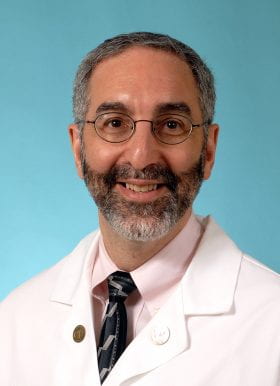
David Gutmann, MD, PhD
Donald O. Schnuck Family Professor & Vice Chair for Research Affairs
Department of Neurology
- Email: gutmannd@wustl.edu
The Gutmann lab studies the cellular and molecular basis underlying nervous system dysfunction in neurofibromatosis using mouse and iPSC models.
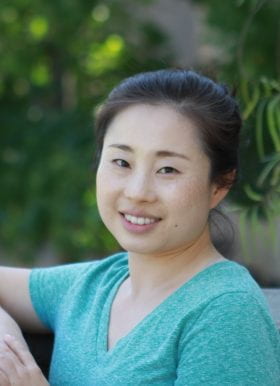
Claudia Han
Assistant Professor, Pathology and Immunology
- Email: claudiah@wustl.edu
We are interested in understanding the epigenetic mechanisms underlying the immune system’s contribution and response in neurodevelopmental and neurodegenerative diseases. We utilize both mouse and stem cell derived models.

James Huettner, PhD
Professor, Cell Biology and Physiology
- Email: jhuettner@wustl.edu
The Huettner lab studies how glutamate gated ion channels influence synapses and the differentiation of neurons from ES cells.
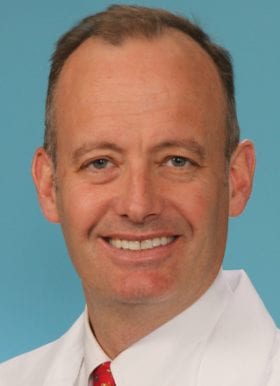
Benjamin Humphreys, MD, PhD
Joseph Friedman Professor of Renal Diseases in Medicine, Division of Nephrology, Department of Medicine
- Email: humphreysbd@wustl.edu
The Humphreys Lab develops new and innovative treatments to help patients with kidney disease. They are using human stem cells to generate kidney organoids in a dish, with a goal of one day transplanting them into patients with kidney failure. They also study the kidney’s ability to regenerate itself so that they can harness this ability for therapeutic uses.

Sanjay Jain, MD, PhD
Associate Professor, Division of Nephrology, Department of Medicine
- Email: sanjayjain@wustl.edu
The Jain lab studies the molecular and cellular mechanisms that regulate maintenance, differentiation and function of kidney progenitors in normal development and disease states.
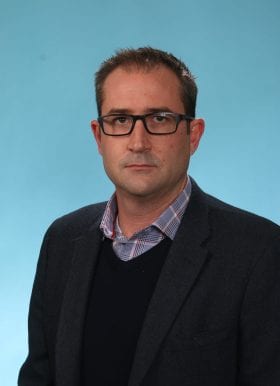
Aaron Johnson, PhD
Assistant Professor, Developmental Biology
- Email: anjohnson@wustl.edu
The Johnson lab studies the development and regeneration of muscle in fly and human.
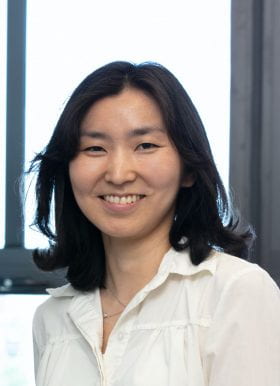
Yoon-A Kang, PhD
Assistant Professor, Department of Medicine, Division of Hematology
- Email: yoonakang@wustl.edu
The research interests of the Kang lab are understanding the mechanisms underlying cell fate decision and lineage specification in hematopoietic stem cells and multipotent progenitors to modulate lineage output in disease and aging contexts.
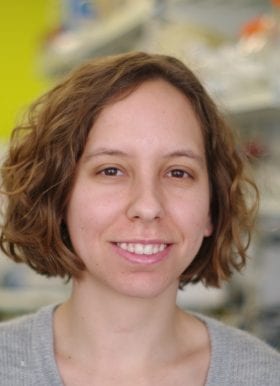
Celeste Karch, PhD
Associate Professor, Psychiatry
- Email: karchc@wustl.edu
The Karch lab studies the molecular mechanisms underlying neurodegenerative tauopathies.
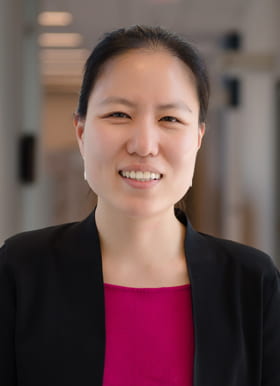
Miriam Kim
Assistant Professor, Oncology
- Email: miriamykim@wustl.edu
Focused research on rational manipulation of human hematopoietic cells for the treatment of disease by combining genetically engineered hematopoietic stem cells and chimeric antigen receptor T cells for therapy of acute myeloid leukemia.
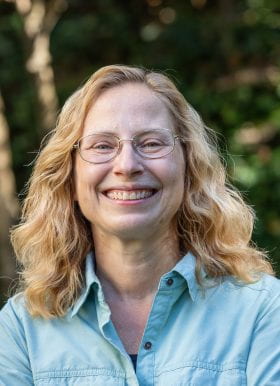
Kristen Kroll, PhD
Professor, Developmental Biology
- Email: kkroll@wustl.edu
The Kroll lab studies the epigenetic and transcriptional regulators that control fate decisions from embryonic stem cells into the neural lineage.
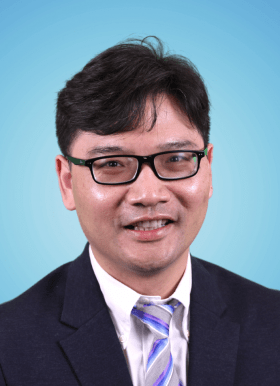
Xiaowei Li, PhD
Assistant Professor, Department of Surgery, Division of Plastic Surgery
- Email: xiaoweili@wustl.edu
The Li lab is developing biomaterials platforms for regenerative medicine, with specific interest in applications of biomaterials for angiogenesis and vascularization, stem cell engineering, and central nervous system and soft tissue regeneration.
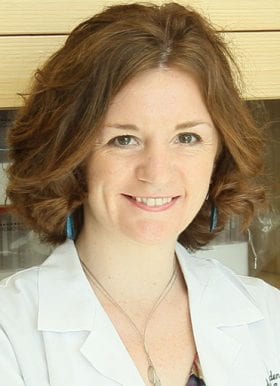
Audrey McAlinden, PhD
Associate Professor, Orthopedic Surgery
- Email: mcalindena@wustl.edu
The McAlinden lab studies the molecular mechanisms regulating cartilage development and maintenance.
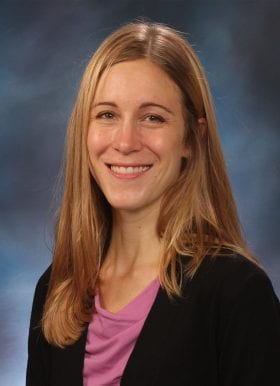
Gretchen Meyer, PhD
Assistant Professor, Physical Therapy
- Email: meyerg@wustl.edu
The Meyer lab studies the effects of muscle injury at the molecular and tissue level and the role of adipose tissue in muscle repair.
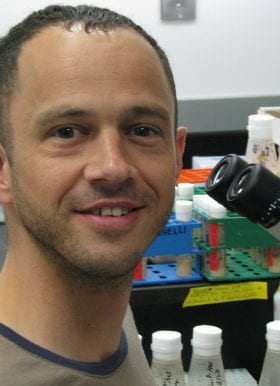
Craig Micchelli, PhD
Associate Professor, Developmental Biology
- Email: micchelli@wustl.edu
The Micchelli lab investigates the molecular mechanisms controlling Drosophila stem cell fate decisions, and how these can inform our understanding of all stem cell systems.
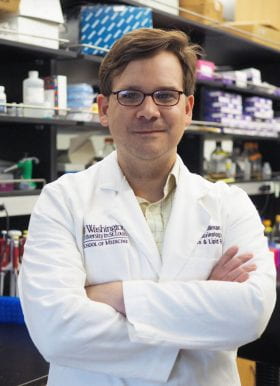
Jeffrey Millman, PhD
Associate Professor; Division of Endocrinology, Metabolism, and Lipid Research; Department of Medicine
- Email: jmillman@wustl.edu
The Millman lab investigates novel stem cell technology and biomedical engineering approaches for the treatment of diabetes.
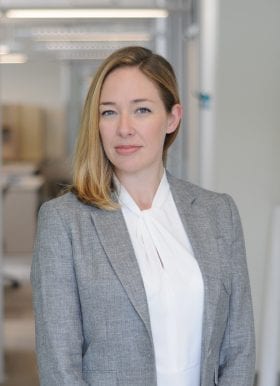
Samantha Morris, PhD
Associate Professor of Genetics and of Developmental Biology
- Email: s.morris@wustl.edu
The Morris lab studies the gene regulatory networks that define cell fate. This information is applied to engineer cell identity, and to better understand cell fate decisions in development and disease.

Regis O'Keefe, MD, PhD
Fred C. Reynolds Professor and Head of Orthopedic Surgery
- Email: okeefer@wustl.edu
The O’Keefe lab studies skeletal development and repair, cancer, and inflammatory diseases of bone.
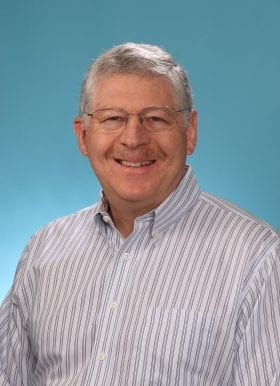
David Ornitz, MD, PhD
Alumni Endowed Professor of Developmental Biology
- Email: dornitz@wustl.edu
The Ornitz lab investigates the functions of Fibroblast Growth Factors (FGFs), their interactions with other signaling pathways, and their role in tissue regeneration, response to injury, and cancer.
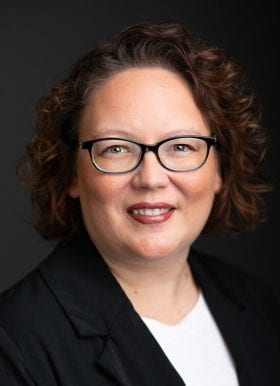
Michelle Oyen, PhD
Associate Professor, Biomedical Engineering
- Email: oyen@wustl.edu
Research in the Oyen Lab is focused on pregnancy and women's health research, particularly in engineering approaches for prevention of and intervention into preterm birth.
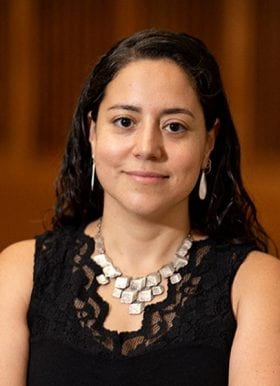
B. Duygu Ozpolat, PhD
Assistant Professor, Department of Biology
- Email: bdozpolat@wustl.edu
If humans lose their reproductive cells (i.e eggs and sperm) they become infertile, in contrast, some animals regenerate their reproductive cells and reproductive organs. The Ozpolat lab's goal is to uncover the mechanisms of reproductive cell and tissue regeneration by identifying the cell types and genes involved in this process, which will inform regenerative medicine approaches.

Randal Paniello, MD, PhD
Professor, Otolaryngology
- Email: paniellor@wustl.edu
The Paniello lab is interested in using muscle stem cells to repair and treat vocal cord paralysis.
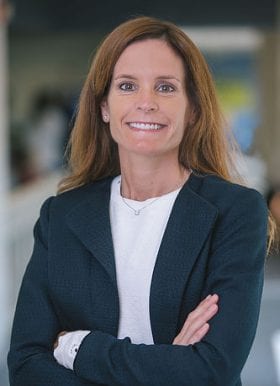
Cecilia Pascual-Garrido, MD
Assistant Professor, Orthopedic Surgery
- Email: cpascualgarrido@wustl.edu
Dr. Pascual-Garrido’s lab focuses on stem cell therapies for cartilage regeneration.
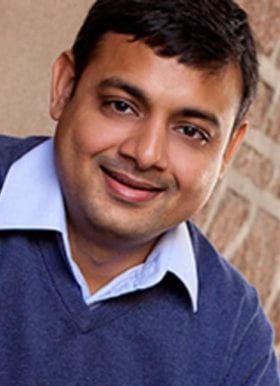
Amit Pathak, PhD
Associate Professor, Mechanical Engineering and Materials Science
- Email: pathaka@wustl.edu
The Pathak lab uses a multidisciplinary approach combining methods and concepts from biomaterials, microfluidics, molecular and cell biology, microscopy, applied mechanics, and computational modeling to investigate the ability of living cells to move through complex tissue environments.
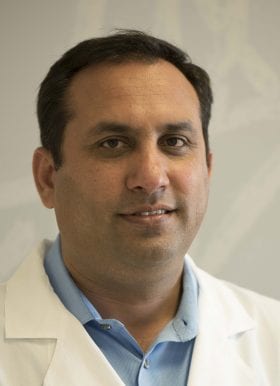
M. Farooq Rai, PhD
Assistant Professor, Department of Orthopedic Surgery
- Email: rai.m@wustl.edu
Dr. Rai is interested in understanding the early molecular mechanisms that orchestrate changes in knee joint after injury and lead to the development of post-traumatic osteoarthritis.

Michael Rauchman, MDCM
Professor, Division of Nephrology, Department of Medicine
- Email: mrauchma@wustl.edu
Dr. Rauchman’s research focuses on understanding the molecular and genetic basis of mammalian kidney development, how disruption of specific pathways leads to abnormal development of this organ, the consequences of injury to adult kidney and the relationship between genetic mutations in humans and the development of future cardiovascular and renal disorders in humans.

Timothy Schedl, PhD
Professor, Genetics
- Email: ts@wustl.edu
The Schedl lab investigates how stem cells choose between self renewal and differentiation and how sex determination is controlled.
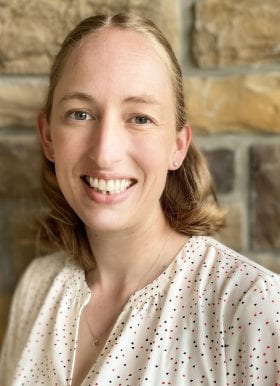
Erica L Scheller, DDS, PhD
Executive Director, Center of Regenerative Medicine; Associate Professor of Medicine; Associate Professor of Cell Biology and Physiology
- Email: scheller@wustl.edu
The Scheller laboratory synthesizes concepts from cell biology, physiology, and bioengineering to study the relationships between the nervous system and the skeleton. They have a directed interest in understanding how neural signals contribute to skeletal homeostasis, and how perturbations to this system contribute to bone loss, impaired healing, and altered regeneration. They also seek to understand how skeletal cells and proteins coordinate and regulate nerve regeneration in and on the bone.
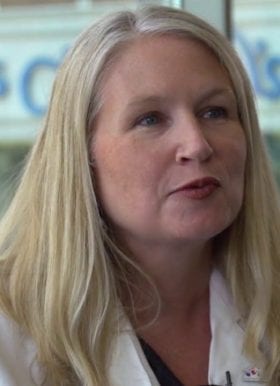
Laura Schuettpelz, MD, PhD
Associate Professor, Pediatrics
- Email: schuettpelz_l@wustl.edu
The Schuettpelz lab studies how inflammatory signals regulate hematopoietic stem cells.
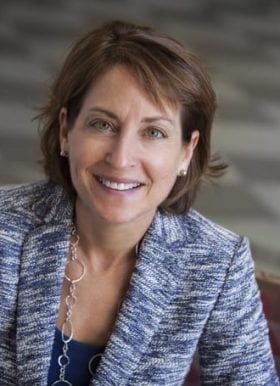
Lori Setton, PhD
Lucy & Stanley Lopata Distinguished Professor and Chair of Biomedical Engineering
- Email: setton@wustl.edu
The Setton Lab focuses on engineering and design of novel materials and drug depots to support regeneration of tissues of the musculoskeletal system.
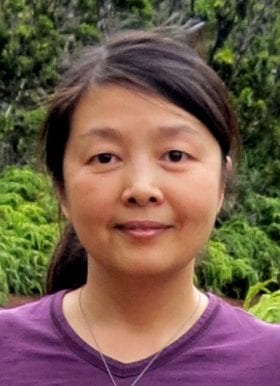
Hua Shen, PhD
Instructor, Orthopedic Surgery
- Email: hshen22@wustl.edu
Dr. Shen's group studies biological and mechanical factors that regulate tendon development, injury, and repair, as a basis to develop new therapeutic approaches to improve tendon healing.
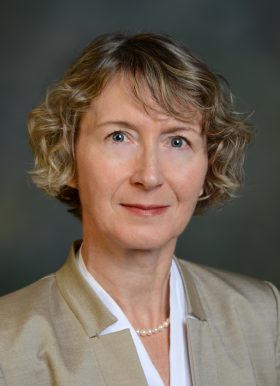
Lilianna Solnica-Krezel, PhD
Co-Director, Center of Regenerative Medicine; Alan A. and Edith L. Wolff Distinguished Professor and Head of Developmental Biology
- Email: solnical@wustl.edu
The Solnica-Krezel lab studies the cellular and molecular genetic mechanisms underlying vertebrate gastrulation in zebrafish and human embryonic stem cells.
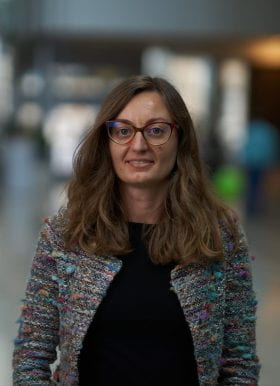
Gaia Tavoni, PhD
Assistant Professor, Department of Neuroscience
- Email: gaia.tavoni@wustl.edu
The Tavoni lab develops theories and models to understand how information is represented and processed in neuronal networks. Areas of focus in the lab include information-theoretic analyses of different forms of plasticity, including adult neurogenesis, and their role in efficient coding.
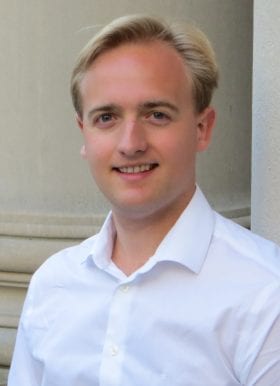
Thorold Theunissen, PhD
Assistant Professor, Developmental Biology; co-Director Human Cells, Tissues, and Organoids Core
- Email: t.theunissen@wustl.edu
The Theunissen lab investigates the molecular mechanisms regulating distinct pluripotent stem cell states and their applications in regenerative medicine.
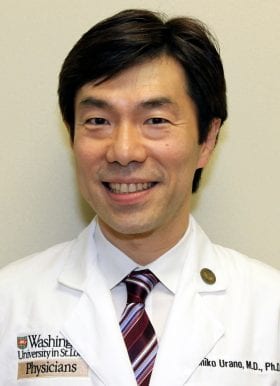
Fumihiko Urano, MD, PhD
Samuel E. Schechter Professor, Division of Endocrinology, Metabolism and Lipid Research, Department of Medicine
- Email: urano@wustl.edu
The Urano lab studies the molecular mechanisms of Wolfram Syndrome and investigates potential therapies.

Leyao Wang, PhD, MPH
Assistant Professor, Department of Medicine, Division of Allergy and Immunology
- Email: leyao.wang@wustl.edu
Dr. Leyao Wang's research focuses on lung microbiota and their role in lung inflammation and asthma. One of the lab's current direction is to establish a lung organoid system so that they can use this model to investigate the interactions between microbes and epithelium.